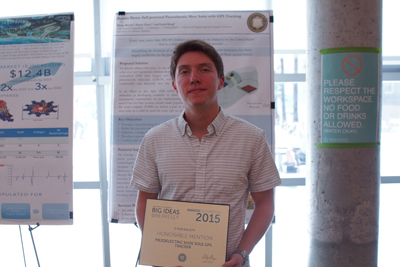 In an effort to fight child trafficking in developing countries, Piezoelectric Shoe Sole GSP Tracker endeavors to manufacture a low-cost and ergonomic children’s shoe with an embedded GPS data logger powered by piezoelectric materials. The technology will provide a powerful, more reliable, energy efficient tracking solution to the growing child abduction epidemic. The team will engineer materials that can be manufactured with little to no impact on the environment, generate a nominal amount of chemical waste, produce significant electrical current and be robust enough to withstand the stress and strains of everyday use. The project will also utilize a One-for-One revenue model made popular by the retail company TOMS; it will deliver a pair of our shoe soles to a child in need for every sale made.
In an effort to fight child trafficking in developing countries, Piezoelectric Shoe Sole GSP Tracker endeavors to manufacture a low-cost and ergonomic children’s shoe with an embedded GPS data logger powered by piezoelectric materials. The technology will provide a powerful, more reliable, energy efficient tracking solution to the growing child abduction epidemic. The team will engineer materials that can be manufactured with little to no impact on the environment, generate a nominal amount of chemical waste, produce significant electrical current and be robust enough to withstand the stress and strains of everyday use. The project will also utilize a One-for-One revenue model made popular by the retail company TOMS; it will deliver a pair of our shoe soles to a child in need for every sale made.
Awards: Honorable Mention
Youth Ag-education Innovation Cooperative
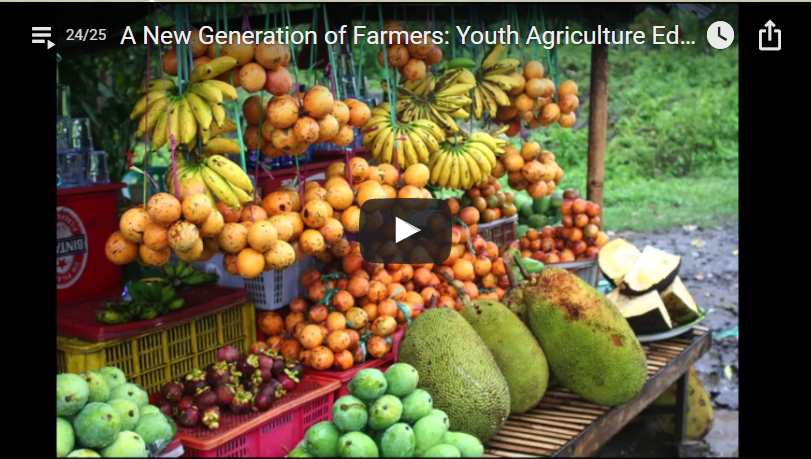
This project seeks to establish a Youth Ag-education and Innovation Cooperative (YAIC) to empower at-risk youth by putting them in the position to work side-by-side with their peers. By including a constitution and by-laws, this program will give young farmers ownership of their ventures so they gain leadership, teamwork, and communication skills within a democratically led institution. YAIC will partner with a local Rwandan NGO, Building Bridges to Rwanda (BBR), and a private American aquaponic company, WeFeedUs, to establish agri-tourism study abroad programs with four American universities. The fundamental goal is to help youth change their negative perception of agriculture through a participatory community-based curriculum program within the framework of a successful agricultural cooperative.
(Note: This project originally won in the Big Ideas “Conflict & Development” Category)
sideProject
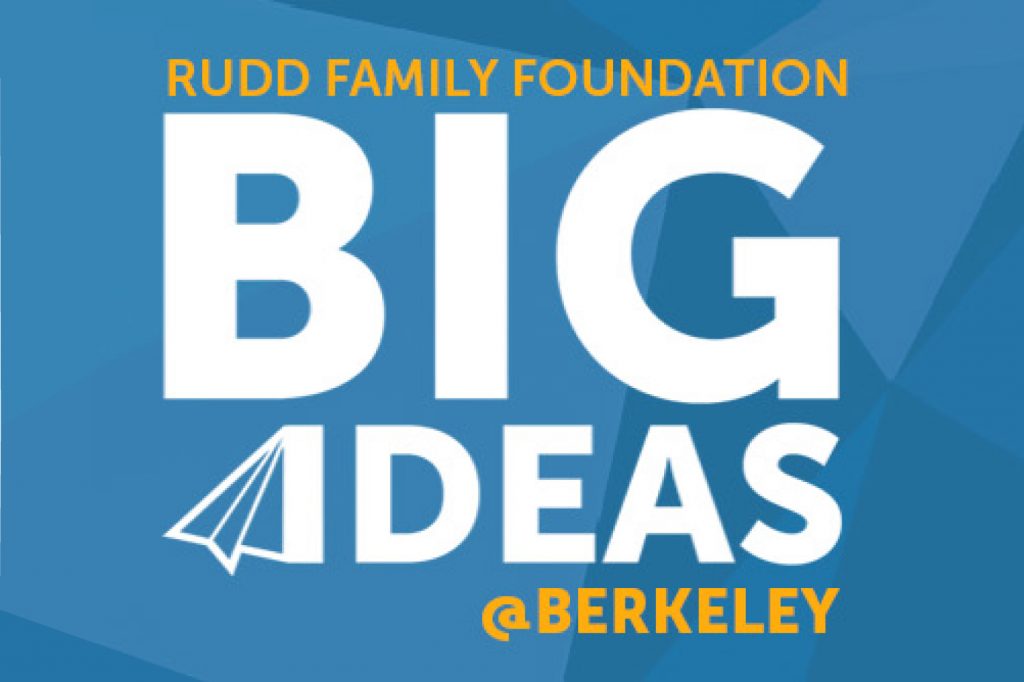
sideProject would like to introduce the new-age resume: a dynamic, “3-D” professional profile that not only displays work history but also demonstrates employability skills. Currently, the resume as a job application tool limits applicants from displaying their full capabilities and restricts employers from getting a holistic view of their candidates. This project is reinventing the resume by creating a networking platform that enables users to showcase their skill sets through small “Projects.” A Project resembles a case competition or company-sponsored contest with a prize incentive that requires users to submit proposals to a live business problem within a given time frame. Each Project will be individually designed with a sponsor, and coded with the set of skills necessary for a complete proposal. Upon submission, the sponsor’s logo and corresponding skills will be linked to the student’s profile (AKA their 3D resume) as recognition for their work. sideProject arms students with the tools to realize their own potential and more accurately reflect their individual skill sets.
Bacteriophage-based Generators for Portable Electronics
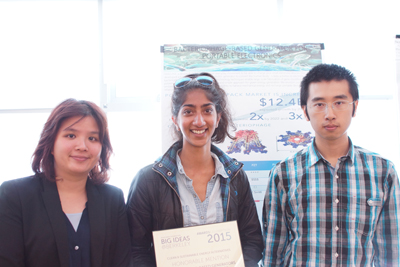 Providing reliable, sustainable and environmentally friendly energy is a significant global challenge today. The International Energy Agency (IEA) estimates that the energy consumption for consumer electronics will be doubled in 2022. Since these electrical devices are predominantly battery driven, it creates a large environmental burden. In addition, the renewable energy solutions currently proposed (such as solar panels and PZT materials), are not environmentally benign. This project seeks to reduce this environmental burden by developing a bacteriophage-based piezoelectric generator to convert the human body’s daily activities ( such as walking) to electricity. Since bacteriophage is a natural material and biotechnology techniques enable large-scale fabrication of gene-modified phages, it potentially offers an environmentally friendly and simple approach to green-energy generation. This project hopes to develop such phage-based electrical generator to power electrical devices by harvesting peoples’ daily movements.
Providing reliable, sustainable and environmentally friendly energy is a significant global challenge today. The International Energy Agency (IEA) estimates that the energy consumption for consumer electronics will be doubled in 2022. Since these electrical devices are predominantly battery driven, it creates a large environmental burden. In addition, the renewable energy solutions currently proposed (such as solar panels and PZT materials), are not environmentally benign. This project seeks to reduce this environmental burden by developing a bacteriophage-based piezoelectric generator to convert the human body’s daily activities ( such as walking) to electricity. Since bacteriophage is a natural material and biotechnology techniques enable large-scale fabrication of gene-modified phages, it potentially offers an environmentally friendly and simple approach to green-energy generation. This project hopes to develop such phage-based electrical generator to power electrical devices by harvesting peoples’ daily movements.
Keti Klaba: A Safe Place for Girls
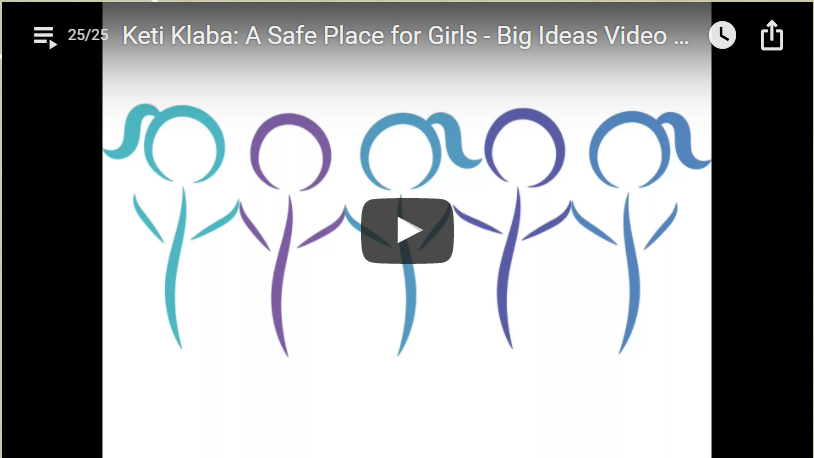
Keti Klaba addresses mental health in Nepalese girls through interactive lessons and community service. Led by Nepali university women, and supplied with adaptive kits of lessons and resources, these clubs provide girls with strong role models, incentives to stay in school, and increased social support from peers and community members. Mental health is a sensitive topic in Nepal, so this program will focus on building general social support to avoid the negative impacts of stigma surrounding programs that address mental health. Through interactive lessons and community service, the central goals of the Keti Klaba (Girl’s Clubs) project are to improve the mental health of pre-adolescent girls in Nepal, and to provide an incentive for girls to continue their education. By the first year, the project will establish 2 Keti Klaba in Nepal.
Project Drsti: A Sustainable Method for Alleviating Vitamin A Deficiency

This project proposes an innovative strategy to alleviate Vitamin A (VA) deficiency in the developing world by harnessing the metabolic power of a probiotic bacterium, Lactobacillus casei. By engineering L. casei to produce provitamin A (β-carotene) during yogurt fermentation, the team can develop a safe and sustainable method of increasing dietary intake of VA. This provitamin A biofortified (i.e., enhanced) yogurt can support VA status and benefit the health of populations in India who consume yogurt as a staple. Moreover, the bacteria strain can be produced inexpensively, freeze-dried into a room-temperature-stable powder, and seamlessly integrated into existing yogurt production cycles. As L. casei is common in many different fermentations processes, this strain could be adapted for use in many other human and animal food sources. Once this strain becomes established in a fermentation system, it will self-perpetuate to ensure a sustainable source of dietary β-carotene.
Saidia na Mazao: A Solution to Post-Harvest Losses in Nanyuki, Kenya
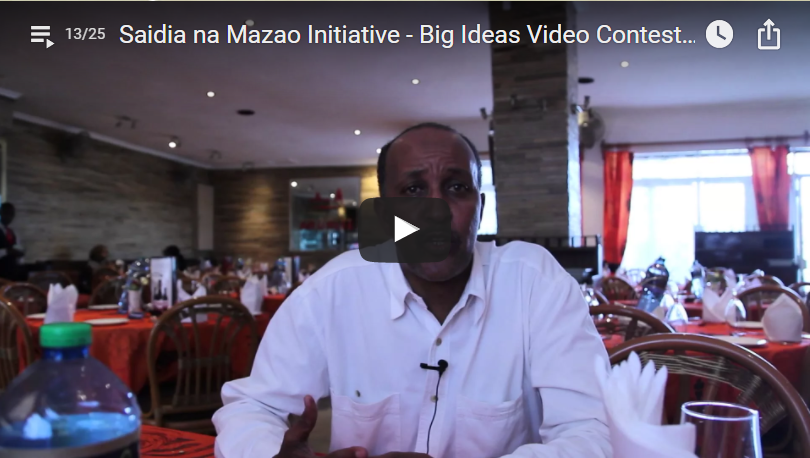
Many small-scale farmers in Kenya lack access to adequate storage facilities that could keep their produce fresher, ultimately reducing high post-harvest losses while increasing their earning potential. This project will lease refrigeration space to farmers in Nanyuki, Kenya at a fair price and in an ideal location while using low-cost solar energy. The Saidia na Mazao initiative plans to purchase three solar-efficient refrigerators and install them in a rented space equipped with solar power technology. Transportation in these areas can be erratic; often short distances can take longer to cover and, as a result, produce spoils in-transit. Agricultural traders with trucks and cold storage facilities use this fact as an opportunity to underpay farmers. This project’s goal is to ensure small-scale farmers regain control by providing them with an easily accessible stopping point where they can safely store their perishable produce.
Gyaan
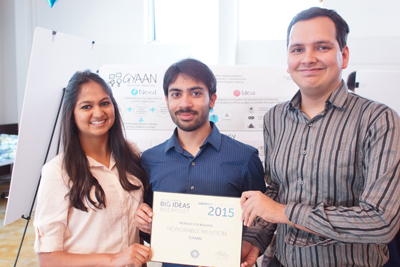
Gyaan is an ecosystem for collaborative, inquiry-based, leveled reading that merges task-based and storytelling approaches to increase reading comprehension in early-stage readers. To build reading comprehension for early readers in an informal, collaborative, accessible way, the project will create a system that levels texts from existing mobile libraries and recommends them based on the reader’s ability. Within the reading experience, the system will model a Guided Reading lesson with various tasks that check comprehension and encourage collaboration and conversation. These tasks and the comprehension skills and strategies, which they seek to strengthen, will align to one or two sub-tasks tested in the Early Grade Reading System (EGRA), and the system will have the option to integrate with existing mobile assessment technologies for continuous monitoring of performance on these tasks.
(Note: This project originally won in the Big Ideas “Mobiles for Reading” category)
East Bay Youth Against Trafficking
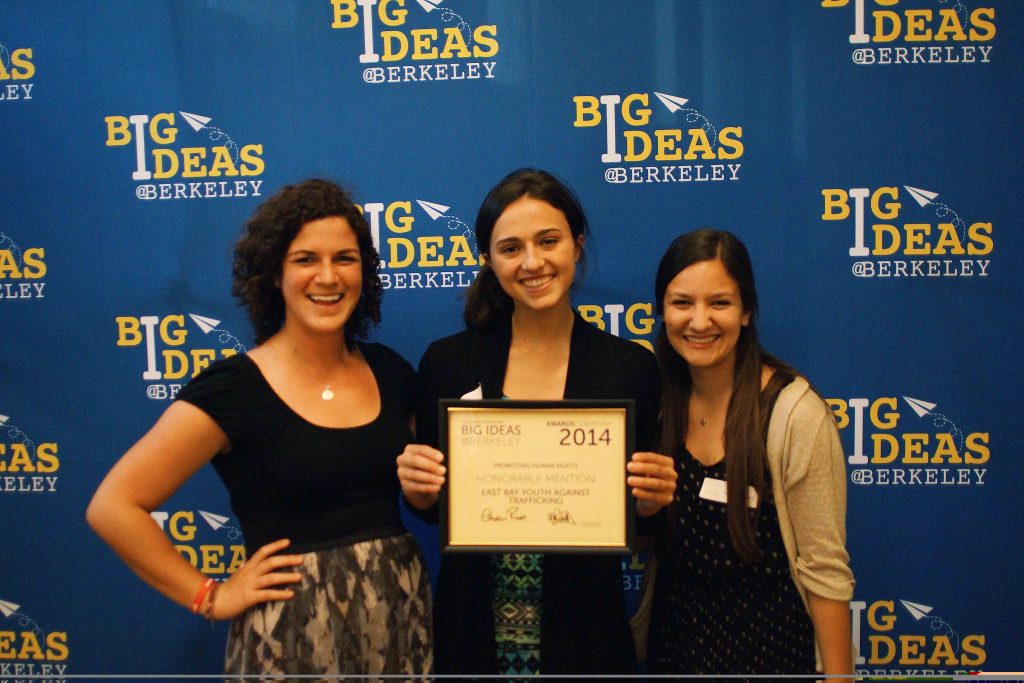
The Berkeley Anti-Trafficking Coalition (BATC) will expand upon Not For Sale’s (NFS) education outreach program. NFS visits local high schools to give educational presentations about human trafficking, in which they challenge students to use their own skills and passions to take action in the anti-trafficking movement. The presentation includes videos, information on sex and labor trafficking, stories of survivors in the Bay Area, and examples of local action being done to combat human trafficking. BATC seeks to revamp the curriculum, increase the number of classrooms visited, build a larger team of Berkeley students through a formalized training program, and provide the necessary resources and assistance for students to start their own BATC high school chapters. A strong student network for the abolitionist cause, with the BATC as a resource for high school students, will inspire future leaders in the anti-trafficking movement.